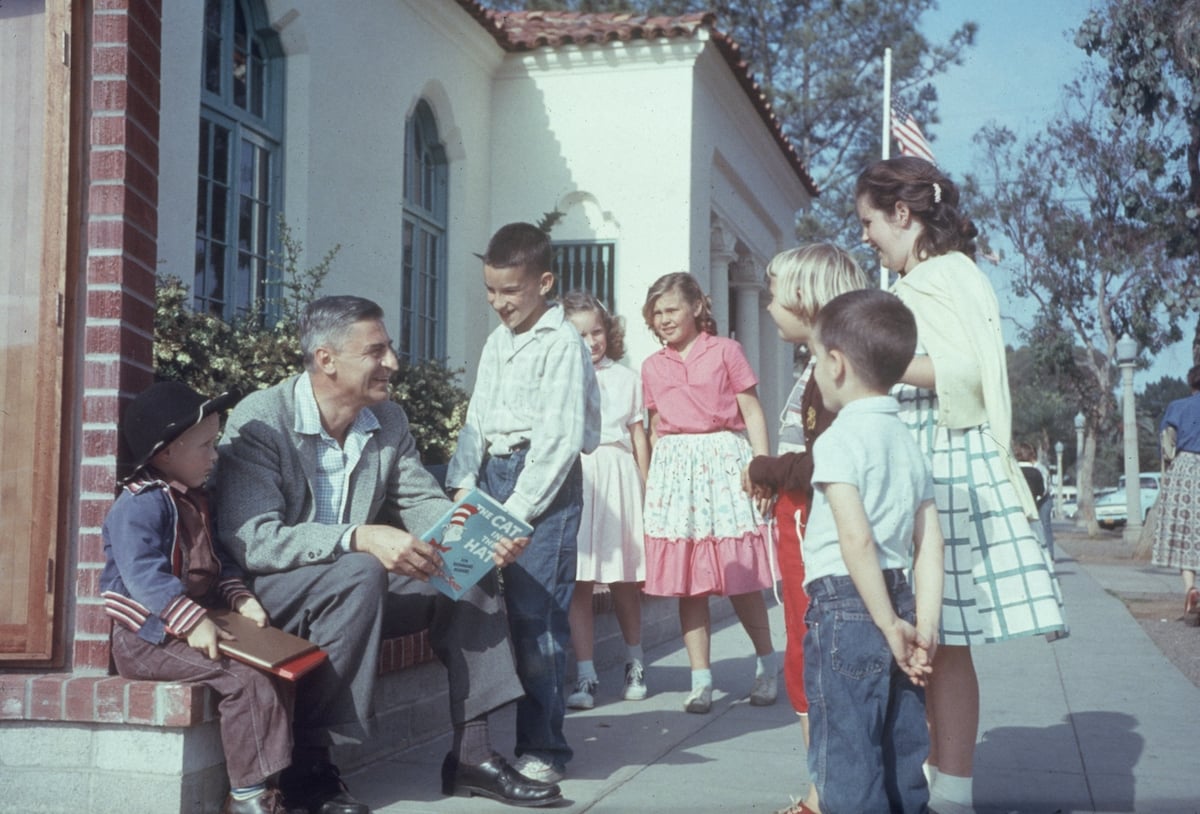Dr. Seuss Was Actually ‘Afraid’ of Children, His Wife Once Said
Despite being a children’s book author, Dr. Seuss (Theodor Seuss Geisel) wasn’t a fan of children and was even “slightly afraid” of them, according to his wife, Audrey Geisel.
“What might they do next? What might they ask next?” Geisel once said about her husband, BBC News reports. “He couldn’t just sit down on the floor and play with them.” Geisel also painted a picture of a man who preferred to live his life without offspring and be as hands-off with children as possible.

Dr. Seuss was happy not being a father
Geisel reflected on her husband’s attitudes toward children, admitting he would have never been happy being a father. ”They wouldn’t have been happy with Ted, and Ted wouldn’t have been happy with them,” she told The New York Times in 2000. “He’s the man who said of children, ‘You have ’em and I’ll entertain ’em.’”
“Ted’s a hard man to break down, but this is who he was,” she continued. “He lived his whole life without children and he was very happy without children. I’ve never been very maternal. There were too many other things I wanted to do. My life with him was what I wanted my life to be.”

Geisel was married and had two daughters before she married Dr. Seuss. But upon the couple’s union, she sent her daughters away, rationalizing that her mother did the same thing with her.
Dr. Seuss had an imaginary child he called Chrysanthemum-Pearl
While Dr. Seuss never had biological children, he “created” an imaginary daughter while still married to his first wife, Helen Palmer Geisel. Seuss imagined Chrysanthemum-Pearl, whom he ultimately featured on Christmas cards, according to Smithsonian Magazine. Apparently, the mythical child “could use chocolate frosting to concoct oyster stew and possessed superhuman sewing skills.”
And while Chrysanthemum-Pearl was the first make-believe child to grace the Geisels’ Christmas cards, others were added throughout the years. Other imaginary children “included Norval, Wally, Wickersham, Miggles, Boo-Boo, and Thnud.” When the imaginary children wouldn’t fit the bill, the Geisels would ask neighborhood children to pose with them for their annual greeting card.


